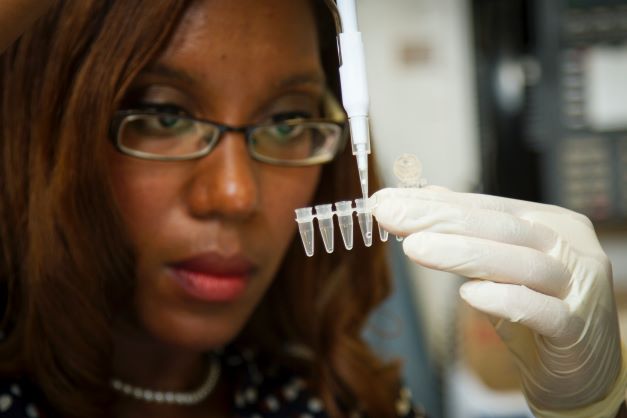Can I Do an At-Home Smear Test?
It’s always good to be one step ahead, whether in your job or buying Christmas presents. But it’s especially true when it comes to your body. Staying on top of your health is essential to living a long and happy life. That goes beyond just a healthy diet and exercise. It’s about being proactive and getting tested to make sure nothing harmful is in your body that you might not know about.
This January the annual Cervical Screening Awareness Week starts today (January 20-26 2023), promoting the importance for women to get regular cervical screenings to identify harmful things like cervical cancer. These screenings are easier to get than ever and are widely available at healthcare clinics and even at home!
What is Cervical Cancer?
Cervical cancer usually develops slowly in the cervix, the narrow, lower part of the uterus which connects it to the vagina. It is overwhelmingly caused by the long-lasting effects of human papillomavirus (HPV). In the UK there are approximately 3,200 new cases of cervical cancer each year. However, high-risk HPV can be discovered early with an HPV test to help detect HPV before it causes cervical cancer.
HPV is a common virus; nearly 8 out of 10 people will get it, and many people often are unaware that they have it. HPV generally goes away within 6-12 months without causing any problems. However, long-lasting HPV infections are the culprit behind almost all cervical cancer diagnoses. According to Cancer Research UK, 99.8% of cervical cancer cases are caused by HPV in the United Kingdom.

What Is A Smear Test?
A smear test is designed to check the health of your cervix. It is not a cancer screening, but it is used as an important tool to prevent cancer. Smear tests check for abnormal cells. They take a small sample of the cells from your cervix, which are collected by inserting a small brush inside the vagina. The sample cells are sent to a lab to look for any changes in the cells which may be an indicator that some further tests need to be done. Having abnormal cells does not mean that you have cancer.
What is an HPV Test? How is it different to a Smear test?
HPV tests are now replacing Smear tests across the world and in the UK as the number one screening test for Cervical Cancer. The sample is very similar, and most women will not notice a difference. Your clinician will still collect a cervical sample. However, instead of looking for changes to the cells, the sample is analysed for HPV instead. HPVs are usually present before changes to the cells happen. This means that the time in between screenings can increase from three years to five years.
If HPV is found in your sample, then Better2Know will automatically do a Smear Test on the same sample – and look for any changes to the cells.
When Should You Get A Cervical Cancer Screening?
Cervical screening is best suited for anyone with a cervix between 25 and 64 years old. However, these tests are not recommended for anyone under 25 because it is very rare to develop cervical cancer before then.
You should try to not have your period at the time of your appointment. If you rarely have days when you do not bleed. please try to go on a light day. This is to get the best possible sample from you. Please remember the first day of your last period as your clinician may want to know this.
Can I take an HPV Test At Home?
Yes! If you are uncomfortable with going to the doctor, you can now take an HPV test at home. Better2Know offers safe, easy, and accurate at-home smear tests available now! The test uses a vaginal swab to collect a sample that is sent to an accredited laboratory in London.
We know your health is private, so we mail the test in a discreet, plain postal pack to ensure no one knows what is inside. We also include a postage-paid return envelope! Results are provided within five days of the sample arriving at the lab and are confidential. So order your test from Better2Know today, and let us help get you one step ahead towards a better and healthier future!
Sources
- Cancer Research UK: Cervical Cancer
- Cancer Research UK: Cervical Cancer Risk
- Jo’s Cervical Cancer Trust: About HPV
- NHS: What is cervical screening?
Categories
- Awards
- Bacterial Vaginosis
- Blood Tests
- Cervical Cancer
- Chlamydia
- Condoms
- Covid-19
- Gardnerella
- Genital Warts
- Gonorrhoea
- Health and Wellness
- Hepatitis A
- Hepatitis B
- Hepatitis C
- Herpes
- HIV
- HIV (AIDS)
- Home Testing
- HPV
- Instant Testing
- MSM
- Mycoplasma
- News
- Non-Specific Urethritis
- PAP Smear
- Pre-Pregnancy
- Sexual Health
- STD Symptoms
- STD Tests and Screens
- STI Transmission
- Stigma
- STIs
- Swab Tests
- Syphilis
- Trichomonas
- Ureaplasma
- WSW
- Zika
